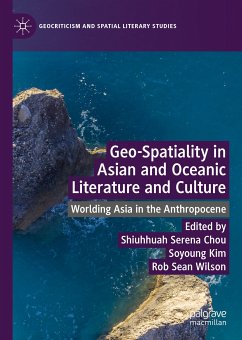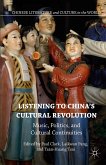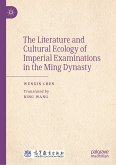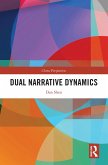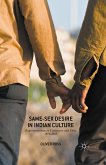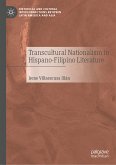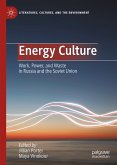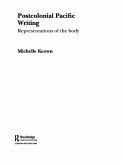Geo-Spatiality in Asian and Oceanic Literature and Culture (eBook, PDF)
Worlding Asia in the Anthropocene
Redaktion: Chou, Shiuhhuah Serena; Wilson, Rob Sean; Kim, Soyoung
97,95 €
97,95 €
inkl. MwSt.
Sofort per Download lieferbar

49 °P sammeln
97,95 €
Als Download kaufen

97,95 €
inkl. MwSt.
Sofort per Download lieferbar

49 °P sammeln
Jetzt verschenken
Alle Infos zum eBook verschenken
97,95 €
inkl. MwSt.
Sofort per Download lieferbar
Alle Infos zum eBook verschenken

49 °P sammeln
Geo-Spatiality in Asian and Oceanic Literature and Culture (eBook, PDF)
Worlding Asia in the Anthropocene
Redaktion: Chou, Shiuhhuah Serena; Wilson, Rob Sean; Kim, Soyoung
- Format: PDF
- Merkliste
- Auf die Merkliste
- Bewerten Bewerten
- Teilen
- Produkt teilen
- Produkterinnerung
- Produkterinnerung

Bitte loggen Sie sich zunächst in Ihr Kundenkonto ein oder registrieren Sie sich bei
bücher.de, um das eBook-Abo tolino select nutzen zu können.
Hier können Sie sich einloggen
Hier können Sie sich einloggen
Sie sind bereits eingeloggt. Klicken Sie auf 2. tolino select Abo, um fortzufahren.

Bitte loggen Sie sich zunächst in Ihr Kundenkonto ein oder registrieren Sie sich bei bücher.de, um das eBook-Abo tolino select nutzen zu können.
This collection opens the geospatiality of "Asia" into an environmental framework called "Oceania" and pushes this complex regional multiplicity towards modes of trans-local solidarity, planetary consciousness, multi-sited decentering, and world belonging. At the transdisciplinary core of this "worlding" process lies the multiple spatial and temporal dynamics of an environmental eco-poetics, articulated via thinking and creating both with and beyond the Pacific and Asia imaginary.
- Geräte: PC
- ohne Kopierschutz
- eBook Hilfe
- Größe: 6.08MB
Andere Kunden interessierten sich auch für
![Listening to China's Cultural Revolution (eBook, PDF) Listening to China's Cultural Revolution (eBook, PDF)]() Listening to China's Cultural Revolution (eBook, PDF)73,95 €
Listening to China's Cultural Revolution (eBook, PDF)73,95 €![The Literature and Cultural Ecology of Imperial Examinations in the Ming Dynasty (eBook, PDF) The Literature and Cultural Ecology of Imperial Examinations in the Ming Dynasty (eBook, PDF)]() Wenxin ChenThe Literature and Cultural Ecology of Imperial Examinations in the Ming Dynasty (eBook, PDF)97,95 €
Wenxin ChenThe Literature and Cultural Ecology of Imperial Examinations in the Ming Dynasty (eBook, PDF)97,95 €![Dual Narrative Dynamics (eBook, PDF) Dual Narrative Dynamics (eBook, PDF)]() Dan ShenDual Narrative Dynamics (eBook, PDF)42,95 €
Dan ShenDual Narrative Dynamics (eBook, PDF)42,95 €![Same-Sex Desire in Indian Culture (eBook, PDF) Same-Sex Desire in Indian Culture (eBook, PDF)]() Oliver RossSame-Sex Desire in Indian Culture (eBook, PDF)40,95 €
Oliver RossSame-Sex Desire in Indian Culture (eBook, PDF)40,95 €![Transcultural Nationalism in Hispano-Filipino Literature (eBook, PDF) Transcultural Nationalism in Hispano-Filipino Literature (eBook, PDF)]() Irene Villaescusa IllánTranscultural Nationalism in Hispano-Filipino Literature (eBook, PDF)40,95 €
Irene Villaescusa IllánTranscultural Nationalism in Hispano-Filipino Literature (eBook, PDF)40,95 €![Energy Culture (eBook, PDF) Energy Culture (eBook, PDF)]() Energy Culture (eBook, PDF)97,95 €
Energy Culture (eBook, PDF)97,95 €![Postcolonial Pacific Writing (eBook, PDF) Postcolonial Pacific Writing (eBook, PDF)]() Michelle KeownPostcolonial Pacific Writing (eBook, PDF)57,95 €
Michelle KeownPostcolonial Pacific Writing (eBook, PDF)57,95 €-
-
-
This collection opens the geospatiality of "Asia" into an environmental framework called "Oceania" and pushes this complex regional multiplicity towards modes of trans-local solidarity, planetary consciousness, multi-sited decentering, and world belonging. At the transdisciplinary core of this "worlding" process lies the multiple spatial and temporal dynamics of an environmental eco-poetics, articulated via thinking and creating both with and beyond the Pacific and Asia imaginary.
Dieser Download kann aus rechtlichen Gründen nur mit Rechnungsadresse in A, B, BG, CY, CZ, D, DK, EW, E, FIN, F, GR, HR, H, IRL, I, LT, L, LR, M, NL, PL, P, R, S, SLO, SK ausgeliefert werden.
Produktdetails
- Produktdetails
- Verlag: Springer International Publishing
- Seitenzahl: 323
- Erscheinungstermin: 4. August 2022
- Englisch
- ISBN-13: 9783031040474
- Artikelnr.: 64761947
- Verlag: Springer International Publishing
- Seitenzahl: 323
- Erscheinungstermin: 4. August 2022
- Englisch
- ISBN-13: 9783031040474
- Artikelnr.: 64761947
- Herstellerkennzeichnung Die Herstellerinformationen sind derzeit nicht verfügbar.
Shiuhhuah Serena Chou is Associate Research Fellow at the Institute of European and American Studies, Academia Sinica, Taiwan. Her research interests include transpacific agricultural environmentalism, Asian American environmental literature, and medical-environmental humanities. She is author of numerous scholarly and creative publications on American organic farming literature and culture and gardens with her colleagues in her office rooftop farm. Soyoung Kim is Professor of Cinema Studies at Korea National University of Arts, South Korea, and Director of Trans: Asia Screen Culture Institute. She is author of Korean Cinema in Global Contexts: Postcolonial Phantom, Blockbuster, Trans-Cinema (forthcoming) and has published numerous books in Korean on Postcolonial modernity, gender, and cinema. As a filmmaker, she directed 'Exile Trilogy' set in Central Asia, Russia, and Korea and 'Women's History Trilogy'. She taught at UC Berkeley andDuke University, USA, as a visiting professor. Rob Wilson received a doctorate in English from the University of California at Berkeley, USA, where he was founding editor of Berkeley Poetry Review. He is author of a dual-language poetry book When the Nikita Moon Rose (2021) and Beat Attitudes: On the Roads to Beatitude for Post-Beat Writers, Dharma Bums, and Cultural-Political Activists (2010). He teaches literature, cultural studies, and creative writing at the University of California at Santa Cruz, USA.
Part 1:Unearthing and Historicizing Regions.- Chapter 1: Geo-Political Fantasy: Continental Action Movies.- Chapter 2: Transpacific and Interracial World-Making in Eddie Huang's Fresh Off the Boat.- Chapter 3: The Place of Worlding: Subaltern Cosmopolitanism in Central Asia and Korea.- Chapter 4: Beyond Complicities: China as Eco-Peril and Worlding the Techno-Dystopian.- Chapter 5: Queering South Pacific into Ono Hai in Leche.- Chapter 6: My Beast, My Brother, and My Alpha Creation in Taiwanese Sci Fi.- Part 2: Activism, Vision, and Intervention.- Chapter 7: Violence, Magic, Certainty: Towards a Journalistic Worlding of the Middle East.- Chapter 8: Refugee Migration through the Division System: On the Ethics of Co-Presence in Krys Lee's How I Became a North Korean.- Chapter 9: The Crusades and a Marginal History of Islam: Tariq Ali's Activism and Alternative World in The Book of Saladin.- Chapter 10: Zeugmatic Formations: Balikbayan Boxes and the Filipino Diaspora Across Asia-Pacific Worlds.- Chapter 11: Call Me Ishimaru: Sailing Transpacific Worlds of Labor and Community from Japan to Brazil to the Americas.- Part 3: Planetary Creation: Critique and Cosmos.- Chapter 12: Friction or Flow? Ecological Transnationalism in Japanese Animation.- Chapter 13: Hurricanes and Kaiju: Climate Change and Toxicity Across the Pacific in Guillermo del Toro's Pacific Rim.- Chapter 14: Albatross Unbound: Worlding the Plastic Sea.- Chapter 15: Agrarianism, Disappointment, and the Mystery of Witnessing.- Chapter 16: Listening to Archipelagic Rains.- Chapter 17: Trans-indigenous Coalitions and Ecological Ties Across Oceania (poetry).- Chapter 18: Epilogue; Reworlding Asia: Towards Alchemies of Planetary Regeneration.
Part 1:Unearthing and Historicizing Regions.- Chapter 1: Geo-Political Fantasy: Continental Action Movies.- Chapter 2: Transpacific and Interracial World-Making in Eddie Huang's Fresh Off the Boat.- Chapter 3: The Place of Worlding: Subaltern Cosmopolitanism in Central Asia and Korea.- Chapter 4: Beyond Complicities: China as Eco-Peril and Worlding the Techno-Dystopian.- Chapter 5: Queering South Pacific into Ono Hai in Leche.- Chapter 6: My Beast, My Brother, and My Alpha Creation in Taiwanese Sci Fi.- Part 2: Activism, Vision, and Intervention.- Chapter 7: Violence, Magic, Certainty: Towards a Journalistic Worlding of the Middle East.- Chapter 8: Refugee Migration through the Division System: On the Ethics of Co-Presence in Krys Lee's How I Became a North Korean.- Chapter 9: The Crusades and a Marginal History of Islam: Tariq Ali's Activism and Alternative World in The Book of Saladin.- Chapter 10: Zeugmatic Formations: Balikbayan Boxes and the Filipino Diaspora Across Asia-Pacific Worlds.- Chapter 11: Call Me Ishimaru: Sailing Transpacific Worlds of Labor and Community from Japan to Brazil to the Americas.- Part 3: Planetary Creation: Critique and Cosmos.- Chapter 12: Friction or Flow? Ecological Transnationalism in Japanese Animation.- Chapter 13: Hurricanes and Kaiju: Climate Change and Toxicity Across the Pacific in Guillermo del Toro's Pacific Rim.- Chapter 14: Albatross Unbound: Worlding the Plastic Sea.- Chapter 15: Agrarianism, Disappointment, and the Mystery of Witnessing.- Chapter 16: Listening to Archipelagic Rains.- Chapter 17: Trans-indigenous Coalitions and Ecological Ties Across Oceania (poetry).- Chapter 18: Epilogue; Reworlding Asia: Towards Alchemies of Planetary Regeneration.
